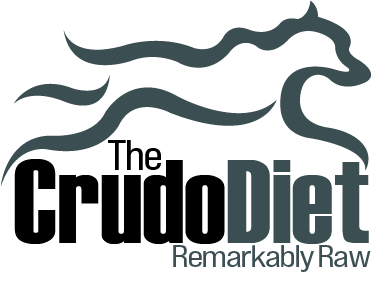Salmonella, Raw Food, & Dogs
Salmonella & Raw Food
Dogs eating raw food have been a controversial topic, with salmonella often raised as a major concern. Even though salmonella is known to cause illness in humans, it's incredibly rare for pooches to get salmonella from consuming raw pet food. In fact, salmonellosis — salmonella infection — does not often occur in dogs and cats due to differences in their gastrointestinal systems when compared to ours; meaning the salmonella bacteria cannot survive inside our furry friends' intestines the same way it can with human hosts. The main causes of dogs contracting salmonella is from contaminated food, that has not been stored at the proper temperature. Properly fed raw meals that are made from healthy ingredients have an array of health benefits for your four-legged companion. As long as you source your ingredients carefully and ensure that each meal is prepared appropriately, there’s no reason why your pup couldn't be overjoyed by consuming some delicious raw dishes!
What is Salmonella and How Does it Affect Food?
Salmonella is a type of bacteria that can cause foodborne illness. It’s responsible for an estimated 1.4 million illnesses and 400 deaths in the United States each year, according to the Centers for Disease Control and Prevention (CDC). The bacteria are commonly found in raw poultry, eggs, meat, dairy products, and some fruits and vegetables. Salmonellosis is the disease caused by ingesting foods contaminated with salmonella bacteria. Symptoms may include diarrhea, fever, abdominal cramps, nausea, vomiting, headache and fatigue. In some cases it can be life-threatening if left untreated.
Salmonella is one of the most common causes of food poisoning worldwide. It typically enters food sources through contact with animal feces or as a result of inadequate hygiene practices during food preparation or handling. High risk foods that are more likely to contain salmonella include raw or undercooked poultry, eggs, beef and pork; unpasteurized dairy products; processed meats; fruits and vegetables; shellfish; nuts and sprouts; and unwashed produce (e.g., lettuce).
Symptoms of Salmonella in Dogs
Salmonella poisoning in dogs can manifest itself in many different ways, ranging from symptoms similar to those seen in humans such as gastrointestinal symptoms, vomiting, diarrhea and fever to more serious symptoms such as dehydration, anorexia and septic shock. If a dog is suspected of being infected with salmonella, it is important to have them tested right away as the condition can be fatal if left untreated. Common signs of salmonella poisoning in dogs include lethargy, lack of appetite, bloody stools, and abdominal pain. While symptoms vary depending on the type of bacteria involved and the health of the dog at the time of infection, quick action should be taken if there are any signs that your pet may be suffering from a salmonella infection.
The Probability of Dogs Contracting Salmonella In A Raw Diet
Dogs have a short digestive tract that reduces the probability of contracting salmonella. This is because the short tract means that food and bacteria pass through the system quickly, reducing the amount of time that bacteria have to multiply.
Salmonella is a type of bacteria that can cause food poisoning in humans and animals. It is commonly found in raw or undercooked meats, eggs, and dairy products. Dogs are susceptible to salmonella just like humans, but their shorter digestive tracts make them less likely to contract the bacteria.
The average transit time for food in a dog's digestive tract is around 4-6 hours, compared to 24-72 hours in humans. This means that any bacteria present in the food will have less time to multiply and potentially cause an infection. Additionally, the acidity of a dog's stomach is much higher than that of a human, which helps to kill off any harmful bacteria.
In summary, dogs have a short digestive tract that reduces the probability of contracting salmonella. This is because the short tract means that food and bacteria pass through the system quickly, reducing the amount of time that bacteria have to multiply. However, it's still important to take precautions to prevent salmonella in dogs.




